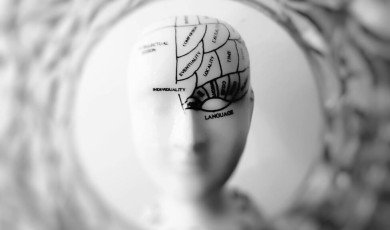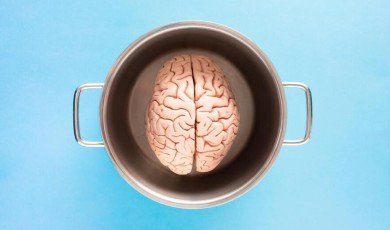
In our rapidly advancing world, brain research stands at the forefront of scientific discovery. Every year, groundbreaking studies emerge from laboratories across the globe, unraveling the mysteries of cognition, perception, behavioral patterns, and unique phenomena like split brain research. However, one significant hurdle persists—language barriers. For brain research to achieve its full potential and truly become a global endeavor, seamless communication and accurate dissemination of findings are crucial. This is where translation services for healthcare play a pivotal role.
In this post, we delve into why translation services for healthcare are essential for global brain research, how they impact behavioral and split brain studies, and what the future could look like with better language solutions connecting scientific communities worldwide.
The Global Landscape of Brain Research
Brain research is inherently international. From universities in the United States, neuroscience centers in Europe, to hospitals in Asia and Latin America, scientists are exploring the complexities of the human brain. Areas like behavioral brain research—examining how the brain shapes our actions, decisions, and emotions—or split brain research, where the corpus callosum is severed or impaired, reveal the connection between language, perception, and consciousness.
However, despite the universality of the human brain, the language used to discuss and publish research remains fragmented. Scientific articles may be published in English, Chinese, German, Japanese, and many other languages. This linguistic diversity, while promising for inclusivity, creates obstacles:
- Delayed Access to Discoveries: Valuable research findings may take years to reach an international audience.
- Misinterpretation of Data: Inaccurate translation can warp experimental results or mislead subsequent studies.
- Barriers to Collaboration: Researchers may struggle to cooperate on multinational projects, missing opportunities for cross-border innovation.
For brain science to truly progress, these barriers must be overcome. Precision and clarity are essential—not only for research, but for clinical applications, education, and the development of interventions for neurological disorders.
The Critical Role of Translation Services for Healthcare in Brain Research
Translation services for healthcare specialize in translating complex scientific and clinical content, including journals, case studies, regulatory documents, and patient records. In the context of brain research, where terminology is highly specialized and findings may have profound implications for patient care, expert translation is indispensable.
Here’s why translation services for healthcare are crucial for advancing global brain science:
1. Ensuring Accuracy in Behavioral Brain Research
Behavioral brain research investigates how neural processes underpin behaviors, emotions, and mental health conditions. This field routinely produces insights with direct clinical applications—think of treatments for anxiety, depression, or cognitive training interventions for neurodegenerative diseases. Miscommunication can lead to misapplied therapies or ineffective interventions.
Medical translation services guarantee that research protocols, statistical findings, and behavioral assessments retain their original meaning across languages. For example, translating a depression scale or an anxiety questionnaire isn’t just about words—it’s about context, cultural references, and scientific precision.
2. Expanding the Reach of Split Brain Research
Split brain studies, which analyze patients with severed corpus callosum or other neural issues, offer unique windows into how the hemispheres of the brain operate both independently and together. The findings from these studies inform theories of consciousness, lateralization of brain function, and even language acquisition.
By utilizing professional translation services for healthcare, researchers can ensure that intricate experimental designs, patient histories, and outcomes are preserved in every language. This avoids ambiguity and facilitates meta-analyses or global collaborations.
3. Facilitating International Collaboration
Brain research increasingly involves multinational teams. Large-scale neuroimaging projects, clinical trials for neurological drugs, and epidemiological studies demand standardized protocols and transparent reporting. Translation services allow researchers to share data, train teams, and obtain regulatory approvals regardless of geography.
- Joint publications become accessible to all partners.
- International conferences are more inclusive, opening the stage for scientists from underrepresented regions.
- New innovations—be it a diagnostic tool or a therapeutic approach—can be evaluated quickly across diverse patient groups.
4. Enhancing Patient Safety and Ethical Standards
Ethical considerations are paramount in brain research. Informed consent documents, clinical trial protocols, and patient communication must be clear and culturally sensitive. Professional medical translation services ensure that patients participating in brain research studies fully understand their rights, the risks, and the goals of each experiment, regardless of their native language.
5. Streamlining Regulatory Compliance
With neurological therapies or devices, researchers often face strict regulatory requirements, which differ by country. Translation services for healthcare help ensure compliance by translating all necessary regulatory documents—making clinical trials smoother and expediting the development of new treatments for brain disorders.
The Future of Brain Research: Overcoming Language Barriers
As the brain research community becomes ever more interconnected, the importance of high-quality translation will only grow. Imagine a future where findings from a small neuroscience lab in Japan swiftly inform clinical practice in Brazil or where breakthrough discoveries in European behavioral brain research are immediately available to therapists in Africa.
This vision is achievable—with the support of dedicated translation services for healthcare. By removing linguistic obstacles, these services democratize science, ensuring that no innovation is left unread, no study is inaccessible due to language, and no patient is left behind.
Conclusion
Global brain research holds the promise to transform our understanding of the mind, behavior, and neurological health. But for this promise to be fulfilled, science must transcend borders—not just geographical, but linguistic ones as well. Accurate, culturally aware medical translation is no longer a luxury; it’s a necessity for progress, patient safety, and the dissemination of innovation.
As we continue to explore the intricacies of the human brain—from behavioral responses to split brain phenomena—we must leverage the power of translation services for healthcare. Together, we can create a world where knowledge flows freely, driving better research, improved treatments, and healthier lives for all.








